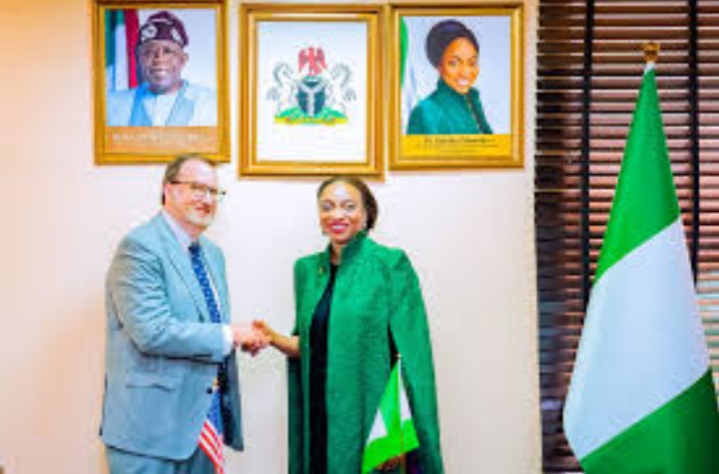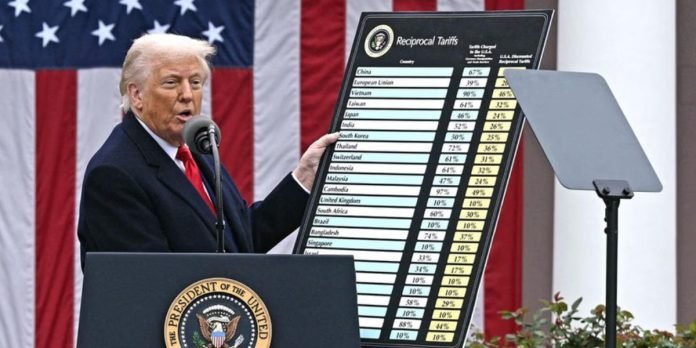US IMPOSES 14% TARIFF ON NIGERIAN EXPORTS, NIGERIA RESPONDS WITH PRAGMATISM

The Federal Government of Nigeria has acknowledged the recent tariff measures announced by the US Government, including a 14% tariff on Nigerian exports. In a statement, Honourable Minister Dr. Jumoke Oduwole said Nigeria remains committed to building economic resilience and accelerating export diversification under President Bola Ahmed Tinubu’s Renewed Hope Agenda.

Dr. Oduwole emphasized that the US is a valued trade and investment partner, bound by shared values and mutual economic interests. The US Ambassador’s visit to the Minister on March 26, 2025, reaffirmed the joint commitment to strengthening economic ties that benefit both economies. Dr. Oduwole noted that Nigeria is actively engaged in consultations with US counterparts and the WTO to find mutually beneficial solutions.

The new tariff measures may impact the competitiveness of Nigerian goods in the US, particularly non-oil products that were previously exempt under AGOA. Dr. Oduwole highlighted that these measures present destabilizing challenges to price competitiveness and market access, especially in emerging and value-added sectors vital to Nigeria’s diversification agenda. “A new 10% tariff on key categories may impact the competitiveness of Nigerian goods in the US,” she said.
Nigeria’s exports to the US have consistently ranged between $5-6 billion annually, with crude petroleum, mineral fuels, oils, and gas products accounting for over 90% of total exports. Non-oil products, such as fertilizers and urea, lead, and agricultural goods, face new pressures. Dr. Oduwole stated that the government is implementing interventions in policy, financing, infrastructure, and diplomacy to help Nigerian businesses remain competitive amidst regional and global tariff hikes.
To mitigate trade risks, Nigeria is exploring alternative market access opportunities and ensuring off-take diversification. The government is also strengthening quality assurance, control, and traceability in Nigerian exports to meet global standards and improve market acceptance. Dr. Oduwole emphasized the need to enhance intra-African trade through the African Continental Free Trade Area (AfCFTA) and leverage frameworks like the Pan-African Payment and Settlement System (PAPSS) to lower trade costs and promote intra-African trade.
Dr. Oduwole concluded that the Federal Ministry of Industry, Trade and Investment is approaching this moment with pragmatism and purpose, turning global and regional trade policy challenges into opportunities to grow non-oil exports and build a more resilient economy.
































































































































































































































































































































































































































































































































































































































































































































































































































































































































































































































































































































































































































































































































































































































































































































































































































































































































































